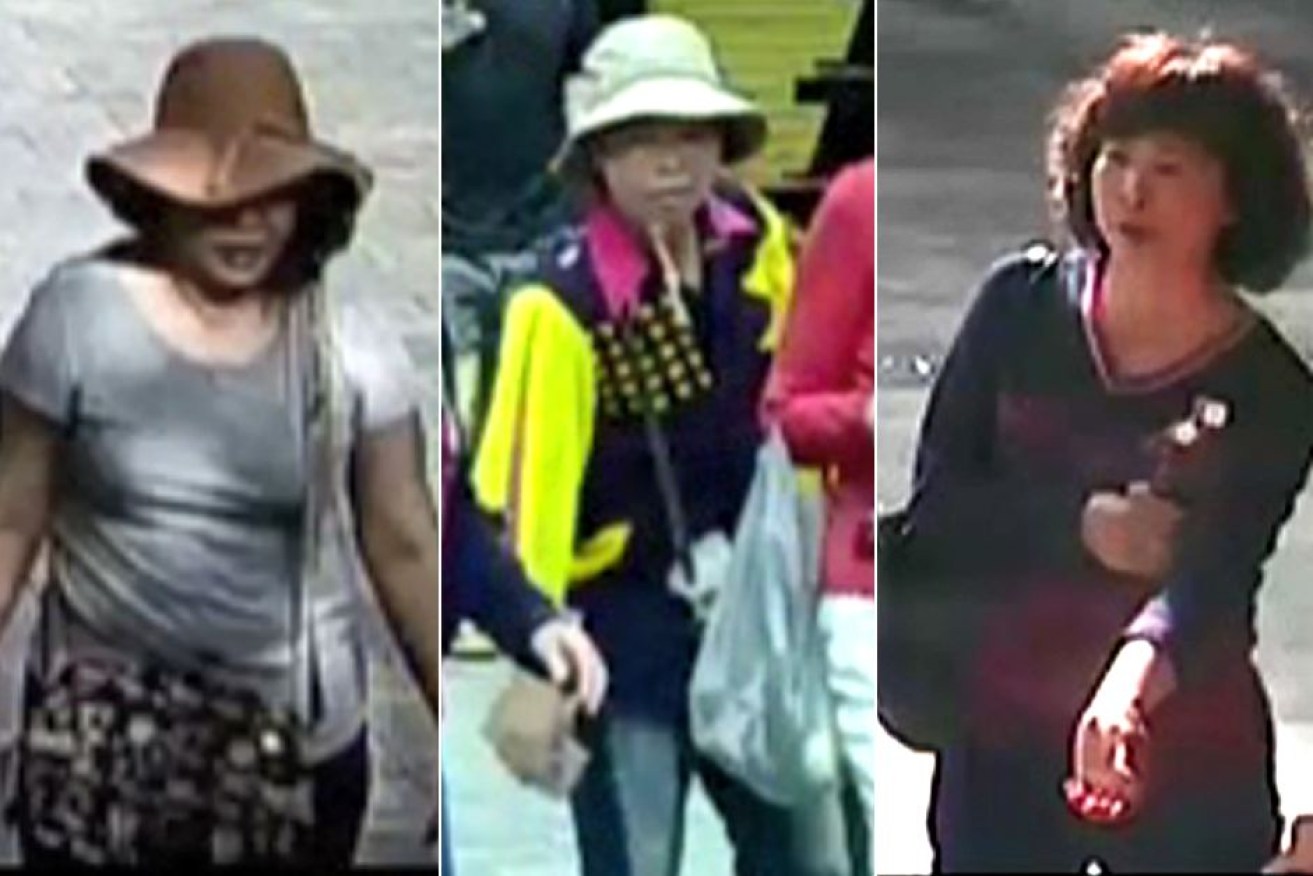Ghost scam targeting elderly Chinese in Australia prompts warning

Police wish to speak with these women over the so-called "blessing" or "ghost" scam. Photo: WA Police
Fraudsters who prey on elderly women of Chinese descent using what is known as a “blessing” or “ghost” scam to trick them into parting with their valuables have begun operating in Australia, according to WA Police.
The scam, which has reportedly existed in Chinese communities across the world since the early 2000s, relies heavily on cultural and traditional beliefs to instil fear in vulnerable people with an Asian background, making them believe their family members are at risk from spirits and need Eastern medicine from a healer to protect them.
It usually takes place in a public area, when someone approaches a victim, telling them a member of their family desperately needs medical assistance or healers, and requires eastern medicine to cure them.
Another woman then “overhears” and offers advice, then a third woman claiming to be a “healer” offers to assist.
Victims are tricked into supplying the scammers with jewellery or high-value items to be “treated in a ritual”, which are switched out for cheaper items.
WA Police issued a statement saying they had at least one report of the scam taking place in the state in March.
Similar incidents were reported in New South Wales in February.
In that instance, victims were told to put valuable items and money into a bag.
During the blessing the fraudsters remove valuables and substitute bottles of mineral water, stones or scrap items.
Victims are commonly told not to open the bag for some time to avoid disrupting the blessing.
Vulnerable elderly targeted
A spokeswoman for a Perth Chinese cultural association said the scammers were likely targeting elderly Chinese women because of their traditional backgrounds and beliefs.
Chung Wah Association honorary secretary Sheila Rejek said Taoism and Buddhism were commonly practised by people of Chinese descent.
She said culturally, Chinese people had beliefs rooted in Eastern medicine.
“The elderly are more superstitious and this group tends to have time to listen to cultural healings, (are) more interested in this sort of topic, as compared to the younger generation who may not have the time for scammers,” Ms Rejek said.
“The reason why the elderly Chinese are being targeted is possibly becasue this is the naive segment of the population.”
Ms Rejek also believed they were targeted in part because they may not have easy access to the internet and social media.
“Somebody younger who has access to social media or media in general may be more savvy and may not have the time for scammers, so we are maybe more aware than the elderly,” she said.
She urged younger people in the community to warn their elderly relatives about the scam, and tell them to be vigilant when approached by strangers.
–ABC








